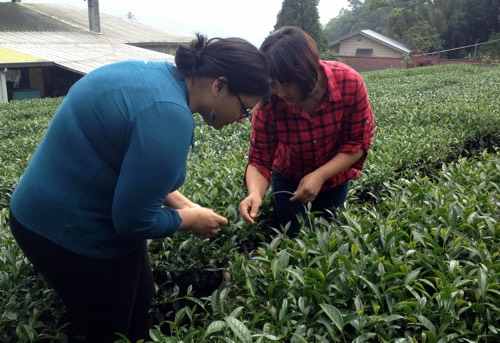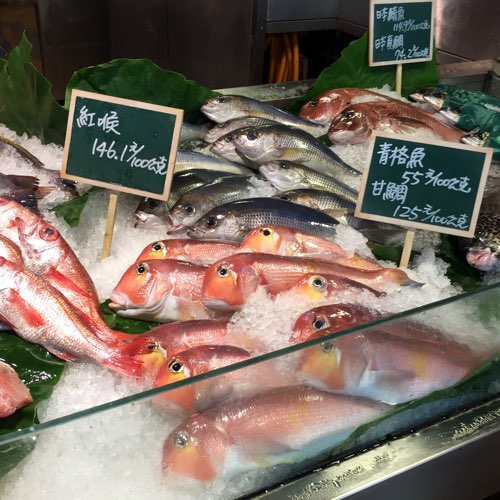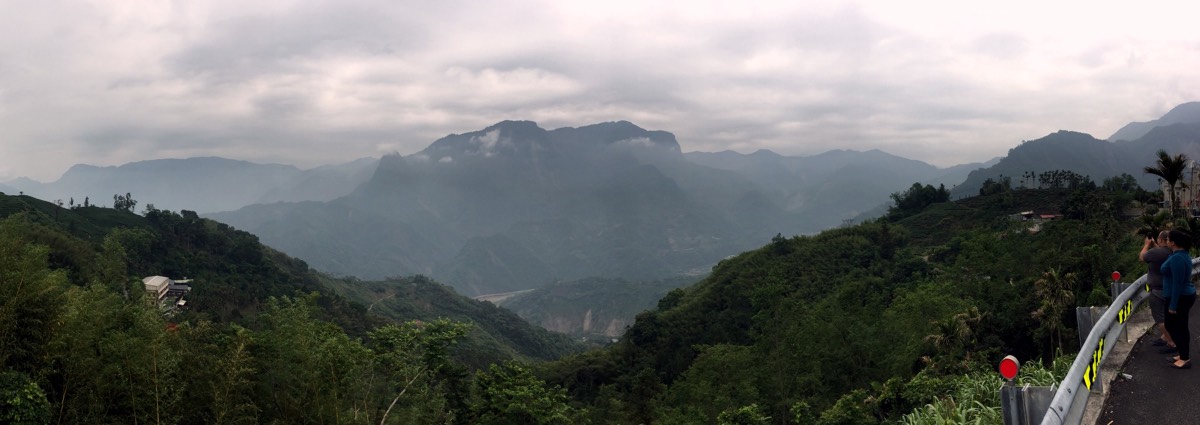When a chance to travel almost anywhere in world landed on her lap, Maretta Delacruz didn’t hesitate to choose Taiwan.
‘Why Taiwan? Taiwan is a melting pot of Asia/Pacific Islands, with strong influences from mainland China, Japan and aboriginal cultures. From Taipei to the south, this little island is known for an amazing variety of food culture, and has a burgeoning café culture to match’, says Maretta, who works for a major beverage company in the United States.
‘I thought an experience in Taiwan will definitely provide me with a perspective change that will re-energize me creatively, and provide me with a learning experience that I can take back and share with my team’, she adds.

‘Trying to pack all of Taiwan’s highlights into a relatively short trip wasn’t easy, but we managed to organize a bespoke tour with the assistance of food author/gourmet guide Muchin Lee’, says Mark Pemberton, Life of Taiwan’s founder.
For Maretta, highlights included ‘a uniquely Taiwanese cooking session with a renowned private chef, and visits to several top-notch restaurants from Beitou to Puli to Tainan, tea-bars/tea-houses, cafes displaying all of Taiwan’s love for great food and drink’.
Reflecting on living the Life of Taiwan, she muses: ‘I knew this trip was going to be a life changer. What I didn’t know is that I would be so deeply touched by this experience and by the new friends I have made. I’ll always surround myself by reminders of my short albeit wonderful time there, even something as simple as enjoying Aiyu Jelly in my bubble tea.’
Long neglected by the travel community, Taiwan is now a rising star among Asian destinations. The ‘beautiful island’ has come of age, and delights discerning travellers with its stunning scenery and fascinating culture.

In a moment of serendipity, while visiting the Alishan mountains – world renowned for their beautiful oolong tea plantations and sea of clouds – Maretta ran into a Taiwanese woman whose passion for coffee is as strong as her own.
About 15 years ago, Ayaguna Pu-u hosted an art teacher from Hong Kong in her home village of Laiji, almost 200km south of Taipei. Years later, when the teacher returned to Taiwan, they met up at a coffeeshop in the city of Taichung, and the teacher treated Pu-u – a member of the indigenous Tsou tribe – to an iced caramel macchiato.
Pu-u was stunned that coffee could be so delicious. Soon she was exploring various beverages, buying coffee beans, and learning the art of making coffee and its many techniques. Then, seven years ago, she discovered her own village has a long history of coffee-growing.
During Japan’s 1895-1945 colonisation of Taiwan, coffee was cultivated on the slopes of Tashan, the tribe’s sacred mountain. After World War II, the plantations were converted to other crops, but coffee trees continued to grow wild – to the confusion of younger residents, who failed to recognize the beans, or appreciate their astringent taste when eaten raw.
Once she had located Laiji’s coffee trees, Pu-u ran into another problem. No one in the village knew how to make a cup of real coffee from beans, but Pu-u was determined. With much research, and the purchase of her first small table-top roaster, Pu-u has set up shop with a private outdoor coffee bar right outside of her art studio, where she enjoys roasting and brewing coffee for friends and tourists, using organic beans grown alongside tea on her family’s land.
‘The climate here is neither too hot nor too cold, so the coffee has a special sweetness. We don’t use any pesticide on our tea or coffee trees’, says Pu-u. ‘Unfortunately, we don’t grow enough to sell it outside Laiji. But visitors are welcome to come here and enjoy our organic tea and coffee’.
‘It was a delight to meet Pu-u and find her beautiful coffee bar tucked away in beautiful Laiji – it was truly a new envisioning of the “third-place” concept’, says Maretta. ‘I felt right at home, right there on the side of this misty mountain – and overjoyed to have the question posed, “would you like to try the coffee brewed on the siphon?” and being able to reply with a resounding: Yes!’
‘It is not everyday that you find a kindred spirit like I’ve found with Pu-u, her desire to never stop discovering new passions to surround herself with, and her freedom to express herself in all forms of art are “ways of being” that I, myself, strive towards’, says Maretta. ‘I knew that this trip was going to be a life changer and perspective changer. What I didn’t know is that I would be so deeply touched by this experience and by the new friends I’ve made’.
Tailored Taiwan Private Tours
At Life of Taiwan, we specialise in catering to the needs of English-speaking and European visitors. Join our luxury tours, private food tours or family tours of Taiwan for an unforgettable journey through Taiwan. Contact us today to plan your perfect Taiwan private tour.

